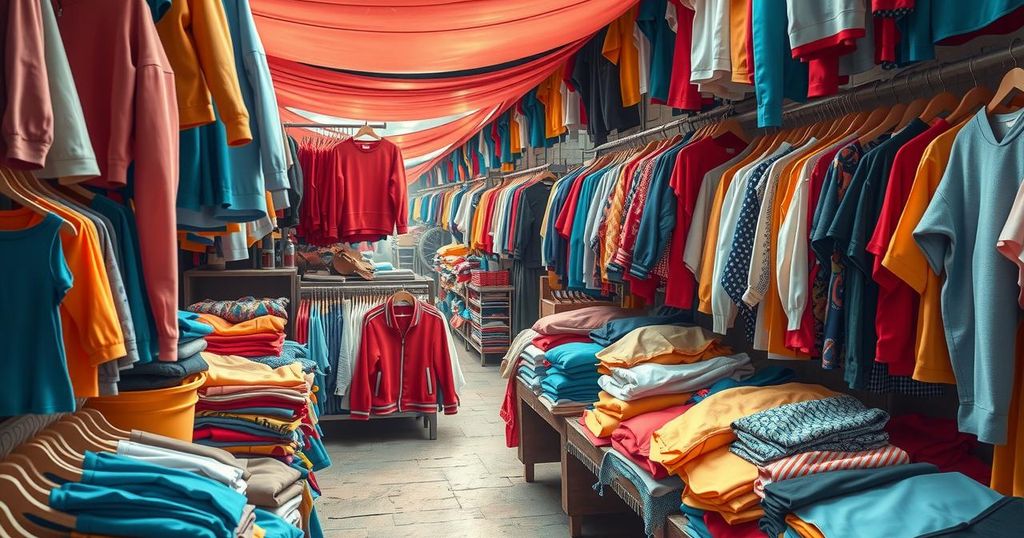Mozambique’s Second-Hand Clothing Sector: A Critical Economic Pillar
A study indicates that Mozambique’s second-hand clothing industry provides over 200,000 jobs and supports one million people. It generates significant income for sellers and satisfies the clothing needs of a large portion of the population. Additionally, it underscores the importance of investment in the local textile sector and calls for cooperative strategies to improve economic conditions.
A recent study reveals that the second-hand clothing industry in Mozambique is crucial to the economy, generating over 200,000 formal and informal jobs and supporting a million citizens. Conducted by Consulting For Africa and Abalon Capital Limited, and commissioned by ADPP Mozambique, the research indicates that this sector plays a vital role in daily life and serves as a catalyst for economic growth.
The study highlights that well-established sellers in this market earn an average of $650 per month, significantly higher than the national minimum wage of $90. Additionally, it states that second-hand clothing fulfills the basic clothing needs of at least 80% of the population and generates approximately $35 million in annual taxes from imports.
Markets in Mozambique are characterized by a high number of second-hand clothing vendors, primarily women and youth, who sell these items alongside food products. The study estimates that over the last five years, approximately 36,750 tonnes of second-hand clothing have been imported per year, with demand increasing by 3.5% last year, supporting about 7.8 jobs per tonne imported.
Second-hand clothing serves as an affordable option for many individuals in Mozambique, where approximately 25% of the population is unemployed, and the country ranks 183rd out of 191 on the United Nations Human Development Index. As such, the findings underscore the industry’s importance in meeting basic clothing needs and contributing to public finances, while cautioning about potential negative disruptions that could exacerbate poverty.
The report suggests that revitalizing the local textile sector is more complex than it appears, emphasizing the need for significant investment to enhance local production and competitiveness against countries like China, India, and Bangladesh. It advocates for a collaborative approach between the second-hand clothing trade and local textile industries, stating that both can coexist productively.
Forecasts suggest that, without notable improvements in GDP growth, second-hand clothing will remain the primary source of affordable garments over the next decade. It urges African nations to seek pragmatic solutions through regional collaborations to bolster competitive advantages, rather than solely targeting second-hand imports. ADPP Mozambique, which commissioned the study, has been active in various sectors since 1982, benefiting about 8.2 million Mozambicans annually through numerous projects.
The findings of the study illuminate the critical role of the second-hand clothing industry in Mozambique’s economy, as it creates employment and meets the basic needs of a significant portion of the population. The report emphasizes the need for investment in the local textile sector while promoting collaboration between various industries. Attention to this sector is imperative, as any disruption could have serious implications for an already impoverished populace.
Original Source: clubofmozambique.com




Post Comment